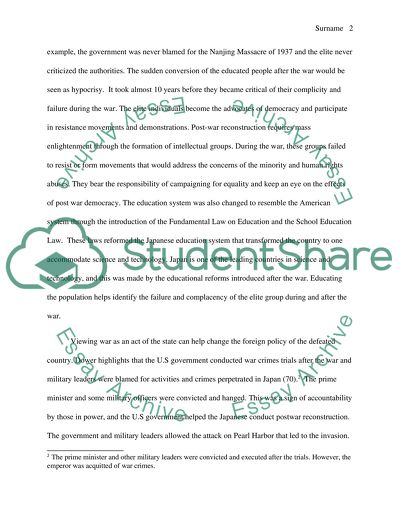Cite this document
(“Source/Book : Embracing Defeat by John W. Dower. Identify three ways Essay”, n.d.)
Source/Book : Embracing Defeat by John W. Dower. Identify three ways Essay. Retrieved from https://studentshare.org/history/1458244-source-book-embracing-defeat-by-john-w-dower
Source/Book : Embracing Defeat by John W. Dower. Identify three ways Essay. Retrieved from https://studentshare.org/history/1458244-source-book-embracing-defeat-by-john-w-dower
(Source/Book : Embracing Defeat by John W. Dower. Identify Three Ways Essay)
Source/Book : Embracing Defeat by John W. Dower. Identify Three Ways Essay. https://studentshare.org/history/1458244-source-book-embracing-defeat-by-john-w-dower.
Source/Book : Embracing Defeat by John W. Dower. Identify Three Ways Essay. https://studentshare.org/history/1458244-source-book-embracing-defeat-by-john-w-dower.
“Source/Book : Embracing Defeat by John W. Dower. Identify Three Ways Essay”, n.d. https://studentshare.org/history/1458244-source-book-embracing-defeat-by-john-w-dower.


